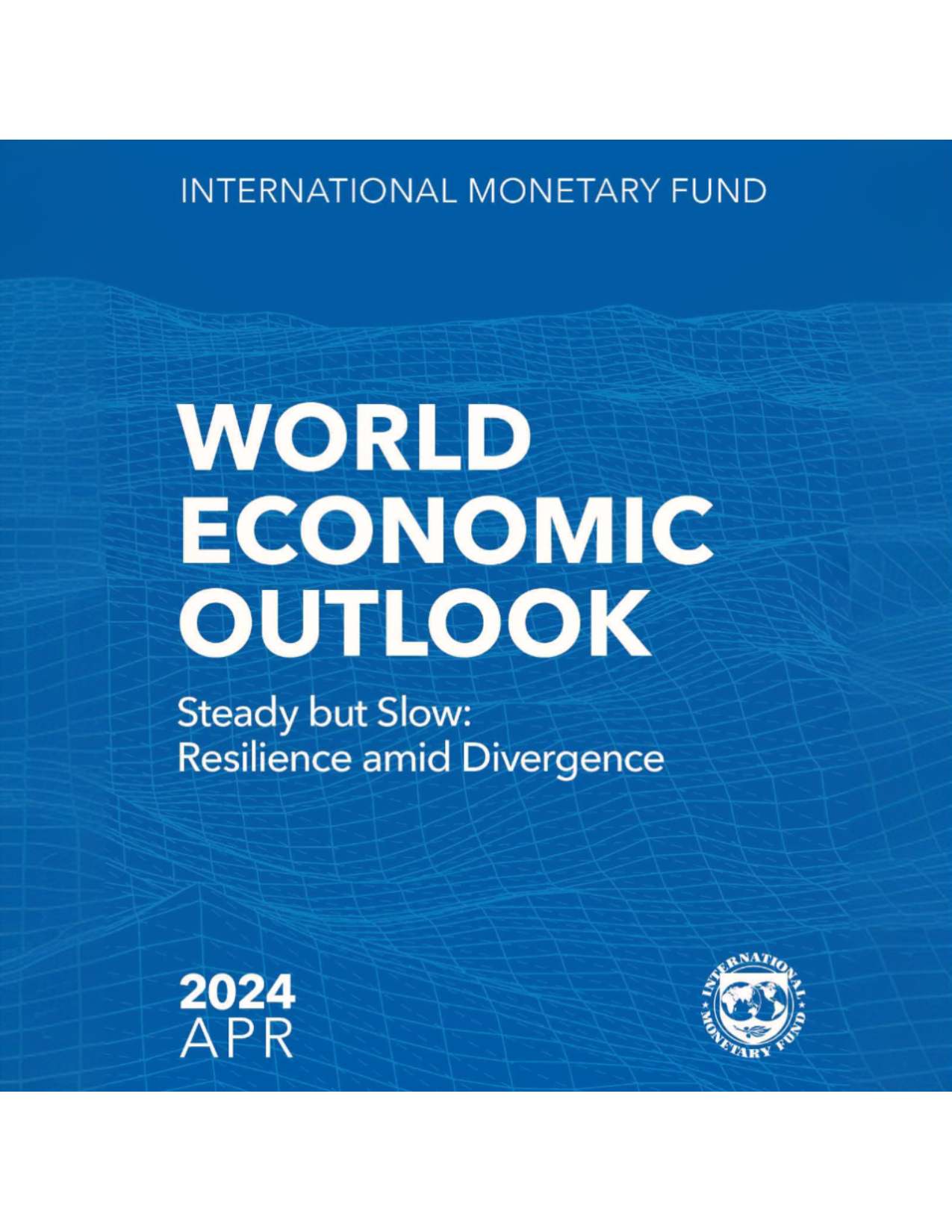IMF retains Pakistan’s GDP growth estimate at 2% for FY24

By MG News | April 16, 2024 at 09:35 PM GMT+05:00
April 16, 2024 (MLN): The International Monetary Fund (IMF) forecast Pakistan’s real GDP growth of 2% in fiscal year 2024 and 3.5% in fiscal year 2025, according to the April World Economic Outlook issued on Tuesday.
The IMF left unchanged its forecast for both years compared to the previous World Economic Outlook's estimate in January.
The forecast for 2024–25 is, however, below the historical (2001–23) average of 4%, with elevated central bank policy rates to fight inflation, a withdrawal of fiscal support amid high debt weighing on economic activity, and low underlying productivity growth.
Moreover, the fund expects the GDP growth to remain slow but steady, with a 5% growth rate forecast for FY29.
Meanwhile, the global lender forecasts Pakistan's inflation to remain elevated at around 24.8% in FY24, but ease significantly to 12.7% in FY25.
The current account deficit, as a percentage of GDP, is estimated to be 1.1% in FY24 and 1.2% in FY25.
Additionally, the report forecasts that the unemployment rate will be 8% in FY24, declining to 7.5% in FY25.
Global
The baseline forecast is for the world economy to continue growing at 3.2% during 2024 and 2025, at the same pace as in 2023.
A slight acceleration for advanced economies—where growth is expected to rise from 1.6% in 2023 to 1.7% in 2024 and 1.8% in 2025—will be offset by a modest slowdown in emerging market and developing economies from 4.3% in 2023 to 4.2% in both 2024 and 2025.
The forecast for global growth five years from now—at 3.1%—is at its lowest in decades.
Global inflation is forecast to decline steadily, from 6.8% in 2023 to 5.9% in 2024 and 4.5% in 2025, with advanced economies returning to their inflation targets sooner than emerging market and developing economies.
Core inflation is generally projected to decline more gradually.
The global economy has been surprisingly resilient, despite significant central bank interest rate hikes to restore price stability.
Changes in mortgage and housing markets over the prepandemic decade of low interest rates have moderated the near-term impact of policy rate hikes.
The lower predicted growth in output per person stems, notably, from persistent structural frictions preventing capital and labor from moving to productive firms.
Furthermore, dimmer prospects for growth in China and other large emerging market economies will weigh on trading partners, it said.
Copyright Mettis Link News
Related News
| Name | Price/Vol | %Chg/NChg |
|---|---|---|
| KSE100 | 130,686.66 280.01M |
0.26% 342.63 |
| ALLSHR | 81,305.25 897.01M |
0.35% 281.26 |
| KSE30 | 39,945.45 114.02M |
0.09% 37.19 |
| KMI30 | 190,698.05 148.61M |
0.61% 1163.05 |
| KMIALLSHR | 55,074.15 495.43M |
0.53% 290.50 |
| BKTi | 34,568.40 28.73M |
-1.07% -372.33 |
| OGTi | 28,739.35 22.59M |
1.57% 443.29 |
| Symbol | Bid/Ask | High/Low |
|---|
| Name | Last | High/Low | Chg/%Chg |
|---|---|---|---|
| BITCOIN FUTURES | 110,270.00 | 110,525.00 110,155.00 |
-145.00 -0.13% |
| BRENT CRUDE | 68.77 | 68.89 68.73 |
-0.03 -0.04% |
| RICHARDS BAY COAL MONTHLY | 97.50 | 0.00 0.00 |
-0.75 -0.76% |
| ROTTERDAM COAL MONTHLY | 108.45 | 109.80 108.45 |
-0.55 -0.50% |
| USD RBD PALM OLEIN | 998.50 | 998.50 998.50 |
0.00 0.00% |
| CRUDE OIL - WTI | 67.03 | 67.18 66.99 |
0.03 0.04% |
| SUGAR #11 WORLD | 16.37 | 16.40 15.44 |
0.79 5.07% |
Chart of the Day
Latest News
Top 5 things to watch in this week
Pakistan Stock Movers
| Name | Last | Chg/%Chg |
|---|
| Name | Last | Chg/%Chg |
|---|




 Trade Balance
Trade Balance
 CPI
CPI